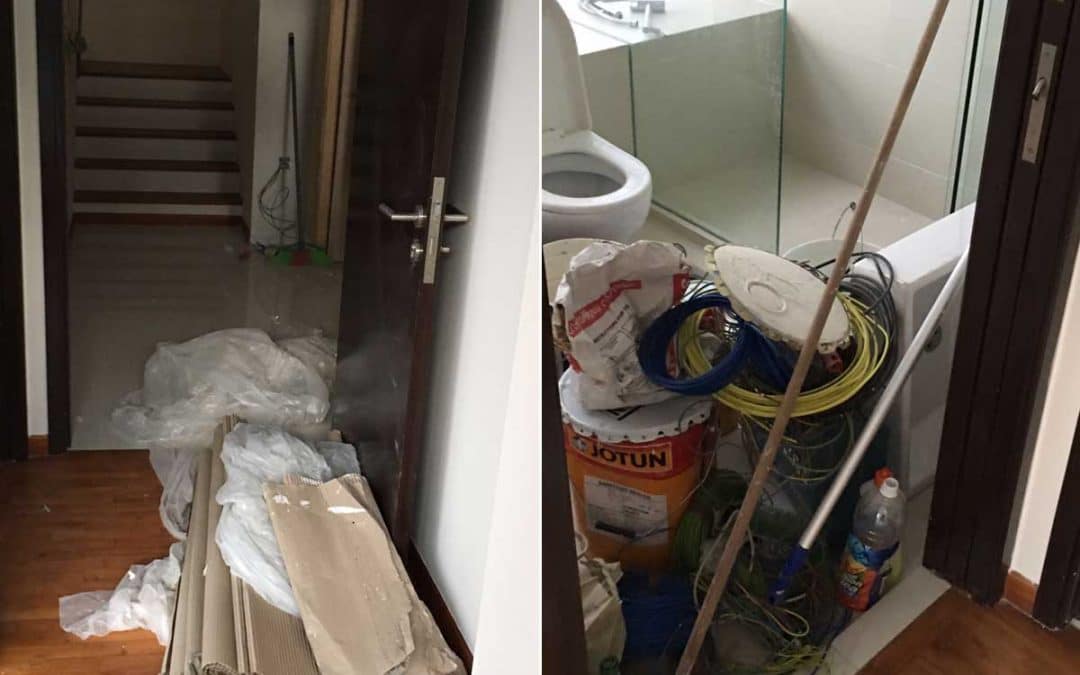
My 24-Unit Building Is For Sale, Should I be Worried?
My 24-Unit Building Is For Sale, Should I be Worried?
I live in 24-unit building in the Western Addition, built long before 1979. It is three stories and, all of the units are either studios or one-bedrooms. I’ve been there 7 years and pay about $2000 a month for a one-bedroom unit.
Yesterday we received notice from the property management company that the owner of the building has decided to sell it. I’ve always assumed that because the building is so large it wouldn’t be turned into condos, have owner move-in evictions, etc. Now that it’s being sold, of course I’m worried about what will happen next. Do you have any advice for what we should be aware of with new ownership?
A few years ago I would have been cautiously optimistic in my answer to your question.
Then, as now, a 24-unit building was ineligible for condominium conversion. An owner-move-in eviction of a given unit sold as a tenancy-in common (the allocation of a single unit to an owner with a shared interest in a building) would have been next to impossible to accomplish, because an OMI requires ownership of a 25% interest in the entire property. An Ellis Act eviction (removing all of the tenants from the building to exit the rental business) would have been impracticable because the highest and best use of a 24-unit building remains as a rental income property.
So it’s likely I would have reassured you that your tenancy would be safe, barring the return of the Lembi family to the San Francisco real estate investor landscape.
But that was yesterday and yesterday’s gone. No tenant is immune from the huckster-carpetbaggers who epitomize today’s new real estate tycoons.
During the last few years, I have noticed an alarming trend. Companies/LLCs often purchase larger rent-controlled buildings like yours with the intent to renovate vacant units, turning studios into one-bedrooms and one-bedrooms into two-bedrooms, etc.
You may ask, how do the units become vacant? There may be a few vacant units in the building as a result of inevitable tenant turnover—the seed units, if you will.
Often the new owners will send the remaining tenants the old “win-win letter,” which goes something like this:
“We are reaching out to you ahead of the start of construction to notify you of the work and also take the opportunity to make you aware of a program the owners have created to help tenants transition into new housing. Some tenants are understandably sensitive to construction activity in close proximity to their unit, and thus one opportunity we would like to bring to your attention is to reach an agreement whereby you would agree to vacate your unit at some agreed upon date in the future, in exchange for a payment of money.”
You know…heads we win, tails you get to live in a noisy, dusty, filthy construction zone—unregulated by an emasculated EPA, barely regulated by a building department with bigger fish to fry and ignored by a build, build, build planning department. And from a legal perspective, not quite uninhabitable enough to justify moving and suing. You’ve just entered the Tenant Twilight Zone.
“And thus one more opportunity we have to procure a vacant unit.”
How can you find out if your building is slated to double its population?
1. Get a copy of the sales listing or a prospectus for the building. Because this type of project will attract more sophisticated investors, a more detailed proposal may be available, one that includes renovation cost estimates per unit, along with projected income for a renovated unit. If the listing includes these details, then you can begin to plan for the inevitable.
2. You can gain valuable insight into a bare bones listing by analyzing the income and expenses. If the price of the building is comparatively low based on net income, it may not be a candidate for renovation.
3. If the building sells, get as much information as you can about the new owner(s). Find other properties they own or have owned. You can search for recorded documents online here and check the San Francisco Property Information Map for more detailed information.
4. Speak to other tenants in the building. Your combined knowledge will be much more complete…and powerful. Create a listserv. Begin to work as a group, a team. Go to the San Francisco Tenants Union to learn how to organize.
5. Try to get information from the real estate agents handling the sale or the current owners. Occasionally, somebody associated with the building may blab. The first rule of speaking to those in the know: keep your ears open and your mouth shut.
6. If the new owners offer you a chance to discuss a buyout, you or a representative tenant from your group may want to consider signing the Pre Buyout Disclosure form. Signing the form does not obligate you, in any way, to accept a buyout; but it may, in some circumstances, represent another method to gain information from the new owners or their representative. Get the owner to explain why your buyout offer is so low. He may want to rationalize his offer by explaining why his costs are so high. Ask lots of questions and listen carefully.
7. If the new owners begin their construction, don’t wait to complain about the noise and the dust and the trip hazards in the hallways. Always document your complaints in writing. Coordinate your complaints with the rest of the tenants. Give the owners one chance to remedy and if they don’t, call a housing inspector at the Department of Building Inspection.
8. Finally, call your San Francisco supervisor. He or she needs to hear your complaints loud and clear and often. He or she may begin to think twice about accepting that “contribution” from the SFAA or some other shill for the so-called real estate industry.
I don’t mean to alarm you by suggesting your building will be absolutely targeted in this manner, but the impending sale of a building these days, even 24-unit building like yours, should concern tenants. An impending sale also provides tenants with an opportunity to connect, organize and take power.




